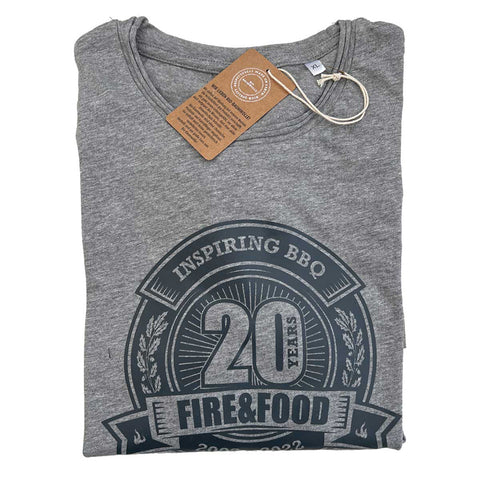The digital FIRE&FOOD International 01/25 is now available!
Dear readers,
we are delighted to present you with another edition of FIRE&FOOD International. The English language version gives FIRE&FOOD the opportunity to make an even better connection with its international fans. The multilingual European barbecue market, particularly in the EU zone, is currently opening up more and more, and is pushing national boundaries into the background. An English language version of FIRE&FOOD is a starting point for establishing a common European barbecue market.
The fire is an extremely important aspect of barbecuing. Our Brazilian colleague Paizão gave us some food for thought with his emotional article about the Fogo de Chão – the South American “ground fire”, which is the equivalent of our camp fire (from page 50). He describes barbecuing in its primordial form. He reports about the spiritual importance of the fire and the communal preparation of the food using a method which has been handed down unchanged for centuries. As far as my own barbecuing is concerned, I discovered that I really enjoy looking after the fire during barbecuing, and often catch myself gazing into the flickering of the flames for minutes on end.
And a great deal of power and spiritualism is involved in barbecuing, to which you devote all of the time that is necessary. It’s not just about preparing the food in order to fill your belly, but it is also sustenance for the soul. This spiritual aspect of barbecuing is fading more and more into the background with the use of modern, smart equipment which runs on electricity. However, the technical features are essentially a guarantee of barbecuing success. Personally I have observed (or at least felt) that 50% of barbecuing enthusiasts appreciate the original “ground fire”, just like I do. The other 50% swear by the technical facilities. And there is a clear tendency on the barbecuing market towards smart devices that are powered with electricity. Wood and charcoal fires are on the wane, and in some places they are even talking about banning them. However, we shouldn’t let them take our fire away from us, otherwise we will lose important barbecuing incentives: Gathering around the fire, socializing and sharing and enjoying spiritual and culinary moments.
We also hit the road again for this edition. Our roving barbecuing reporter Peter Kemnitzer was initiated in the secrets of genuine Swahili cuisine on the tropical Kenyan island of Lamu (from page 58). Meat experts such as David Pietralla (Dormant phase from page 8), Philipp Sontag (Pork cheeks from page 37) and Ronny Paulusch (Air-dried ham from page 84) show us what is important and correct when working with meat.
“May your embers always be glowing!”
Your Elmar Fetscher, Publisher





















